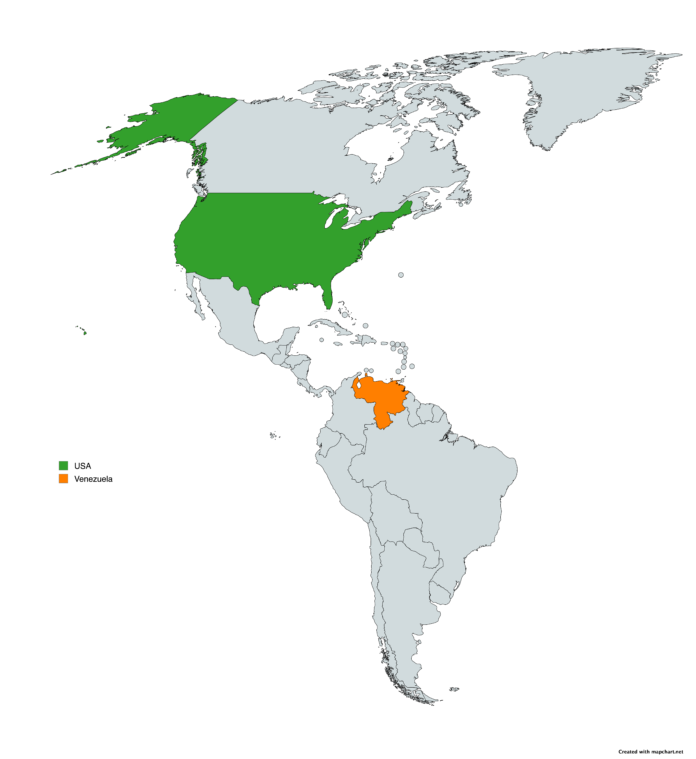
President Donald Trump announced that U.S. forces carried out a second strike on a Venezuelan vessel this month, saying the boat was operated by a drug cartel and was en route to the United States. Trump wrote on Truth Social that three people were killed in Monday’s attack and posted a short video clip showing a vessel engulfed in flames. He described those killed as “male terrorists” and declared the strikes a warning to others who move hard drugs toward American shores.
This operation follows a strike on Sept. 2 that the White House said killed 11 people. Officials have characterized the targets as members of Tren de Aragua, a gang the U.S. has labeled a terrorist organization. Venezuela’s government has denied that those killed were cartel members, and it has accused Washington of attacking civilians. Interior Minister Diosdado Cabello said the earlier victims were neither Tren de Aragua members nor drug traffickers. President Nicolás Maduro condemned the first strike as a “military attack on civilians” and suggested the true aim is political pressure on his government.
Few details have been released about either operation. The administration has posted brief, unclassified video clips and offered public statements asserting that large quantities of cocaine and fentanyl were found in the water. Trump and other U.S. officials say they possess recorded evidence, but they have not made raw intelligence or chain-of-custody documentation publicly available. Venezuelan authorities likewise have released little detailed information about the people on board or the boats’ activities prior to being struck.
The use of lethal military force in these incidents marks a sharp departure from longstanding U.S. practice of leaning on law enforcement and the Coast Guard to interdict suspected drug shipments at sea. Critics argue that the strikes raise profound legal and ethical questions. Some senators, including Adam Schiff, are pursuing measures to limit further military action without congressional authorization. Other lawmakers on both sides of the aisle have expressed alarm, and human rights organizations have warned that strikes of this kind could amount to extrajudicial killings if proper legal authority and oversight are not demonstrated.
Administration officials defend the actions as necessary to protect American lives and to disrupt transnational criminal networks that traffic dangerous narcotics. Defense and national security aides point to a wider military posture in the region that includes ships, aircraft and drone deployments intended to deter smuggling and gather intelligence. Trump has suggested the campaign could expand beyond maritime targets to drug-smuggling operations on land.
Independent reporting has raised conflicting accounts about some operational details. At least one news outlet cited people familiar with an earlier strike who said a targeted boat had turned back toward shore before it was struck. The United Nations Office on Drugs and Crime and U.S. law enforcement reports indicate that the majority of coca cultivation and many trafficking routes for cocaine originate in Colombia, Peru and Bolivia, complicating assertions that Venezuela is the principal source of supply to the United States.
For now, the strikes have escalated tensions between Washington and Caracas and prompted urgent calls for transparency. Lawmakers, diplomats and rights groups are asking for fuller disclosure about the legal basis for the strikes, the evidence tying the vessels to cartels, and the steps taken to minimize harm to civilians. Absent that information, the incidents are likely to deepen an already fraught relationship and fuel debate over how the United States should confront drug trafficking beyond law-enforcement channels.
Green = USA
Orange = Venezuela
Image is licensed under the Creative Commons Attribution-Share Alike 4.0 International license and was created using MapChart (https://mapchart.net).